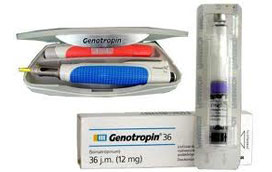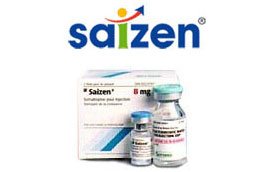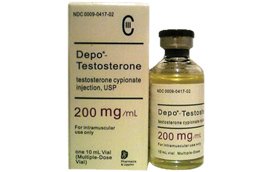Key Points
- Your body produces many hormones that are either directly or indirectly related to weight.
- There are two specific hormones related to hunger and satiety – ghrelin and leptin.
- Sex hormones, thyroid hormones, insulin, and Human Chorionic Gonadotropin (HCG) also play a significant role in body weight.
- A medically supervised HCG diet plan can be an effective way to lose weight.
There is a very important relationship between your hormones and weight gain and weight loss. If you are struggling with weight, the importance of your hormones and proper hormonal balance cannot be understated. There are several hormones that are intimately related to your body weight because hormones are responsible for everything from when you feel hungry and when you feel full, to how well you burn fat. The sex hormones, HGH, thyroid hormones, insulin, leptin, ghrelin, and Human Chorionic Gonadotropin (HCG) all play a significant role in body weight.
How Do Hormones Influence Your Fullness and Hunger?
 There are two main hormones associated with hunger, appetite, and feeling full – ghrelin and leptin. When you feel hungry and when you feel full obviously relates to how much you eat, and therefore, these two hormones have a powerful influence on body weight.
Hunger Hormones – Of the two, the “hunger hormone” is ghrelin. Ghrelin is the hormone that stimulates appetite. Ghrelin is mainly produced and released by the stomach, but other parts of the body release this hunger hormone as well, such as the brain, small intestine, and pancreas. While it is often called the “hunger hormone,” ghrelin impacts body weight in a number of ways other than appetite. Ghrelin also:
There are two main hormones associated with hunger, appetite, and feeling full – ghrelin and leptin. When you feel hungry and when you feel full obviously relates to how much you eat, and therefore, these two hormones have a powerful influence on body weight.
Hunger Hormones – Of the two, the “hunger hormone” is ghrelin. Ghrelin is the hormone that stimulates appetite. Ghrelin is mainly produced and released by the stomach, but other parts of the body release this hunger hormone as well, such as the brain, small intestine, and pancreas. While it is often called the “hunger hormone,” ghrelin impacts body weight in a number of ways other than appetite. Ghrelin also:
- Plays a role in the way your body stores fat.
- Helps trigger your pituitary gland to release human growth hormone – which plays a significant role in metabolism.
- Influences the release of insulin, another body weight-related hormone that is responsible for processing sugar.
- Helps to maintain strong muscles, which also raises metabolism.
How do Hormones Affect Body Weight?
Hormones affect your body weight in many ways. As mentioned above, there are two hormones that regulate hunger and appetite, but that is only one way that hormones affect body weight. Hormones stimulate or regulate many biological processes that are either directly or indirectly associated with body weight. First of all, hormones such as testosterone, human growth hormone, and insulin are all involved in metabolism and how well your body burns or stores fat. Thyroid hormones also impact metabolism, and a symptom of thyroid hormone imbalance is weight gain. Another hormone that plays a very interesting role when it comes to body weight is Human Chorionic Gonadotropin or HCG. HCG is a hormone naturally produced in large quantities during pregnancy. It is naturally occurring in men’s body’s as well. Because of the impact that HCG has on how your body stores or releases fat, it has become a popular and effective weight loss method when used along with a medically supervised HCG diet plan.Factors That Can Cause Hormone Imbalances
- Age – There are many things that can lead to hormone imbalances, but perhaps one of the most important one is age. Hormones are critical to many biological processes. They regulate or influence everything from hunger to sexual function. However, an unfortunate fact of life is that many of our critical hormones, important as they are – simply decline as we age. Hormones that are related to weight and metabolism, such as HGH, testosterone, and thyroid hormones, all decline with age. This age-related hormone loss leads to hormone imbalances that can influence weight gain and hinder weight loss.
- Health conditions – There are several health conditions that can cause hormone imbalances. Any disease or injury that impacts the gland of the endocrine system or other glands or organs that produce hormones can cause hormone imbalance. Some genetic disorders can cause hormone issues.
- Body weight – The is an interesting relationship between body weight and hormone levels. People of ideal body weight tend to have good hormone balance. Obesity tends to through hormones off – particularly the hormones we have been talking about on these pages. This becomes a kind of a vicious cycle of imbalanced hormones leading to obesity and obesity leading to further hormone imbalances.
- Lifestyle – Of course, your lifestyle impacts your body weight, with those who are more sedentary having more issues with weight than those who lead a more active and healthy lifestyle.
- Diet – Not only what you eat, but when and how you eat has a profound effect on your weight and your weight-related hormones as well!
- Other factors – Other factors, such as emotional states, stress, lack of sleep, and some medications, can also lead to hormone imbalances.
How to Fix Your Hormones for Weight Loss
 If you are having difficulty losing weight despite diet and exercise, a hormone imbalance could be to blame. If you are found to have low testosterone or low HGH, bringing these hormones back into balance can often aid in weight loss.
However, if your other hormones are in balance, and you still are struggling with weight loss – an HCG diet plan may be right for you.
HCG is produced in large quantities by the female body during pregnancy. Its purpose is to make the mother’s body release stored nutrients for the developing fetus. Researchers came to understand that they could use this biological property as a medical weight loss method by, in effect, tricking the body – even a male body – into thinking it’s pregnant and thereby releasing fat to provide nutrition for a non-existent baby.
When HCG levels are increased in the body via medically supervised injections, and there is, in reality, no fetus present to use the nutrients and stored calories, they are simply eliminated instead of going to nourish a developing baby.
HCG injections have also been shown to:
If you are having difficulty losing weight despite diet and exercise, a hormone imbalance could be to blame. If you are found to have low testosterone or low HGH, bringing these hormones back into balance can often aid in weight loss.
However, if your other hormones are in balance, and you still are struggling with weight loss – an HCG diet plan may be right for you.
HCG is produced in large quantities by the female body during pregnancy. Its purpose is to make the mother’s body release stored nutrients for the developing fetus. Researchers came to understand that they could use this biological property as a medical weight loss method by, in effect, tricking the body – even a male body – into thinking it’s pregnant and thereby releasing fat to provide nutrition for a non-existent baby.
When HCG levels are increased in the body via medically supervised injections, and there is, in reality, no fetus present to use the nutrients and stored calories, they are simply eliminated instead of going to nourish a developing baby.
HCG injections have also been shown to:
- Help your body release stored toxins.
- Boost your metabolism.
- Stimulate the body to burn significant abdominal fat when used in conjunction with a low-calorie diet.




















